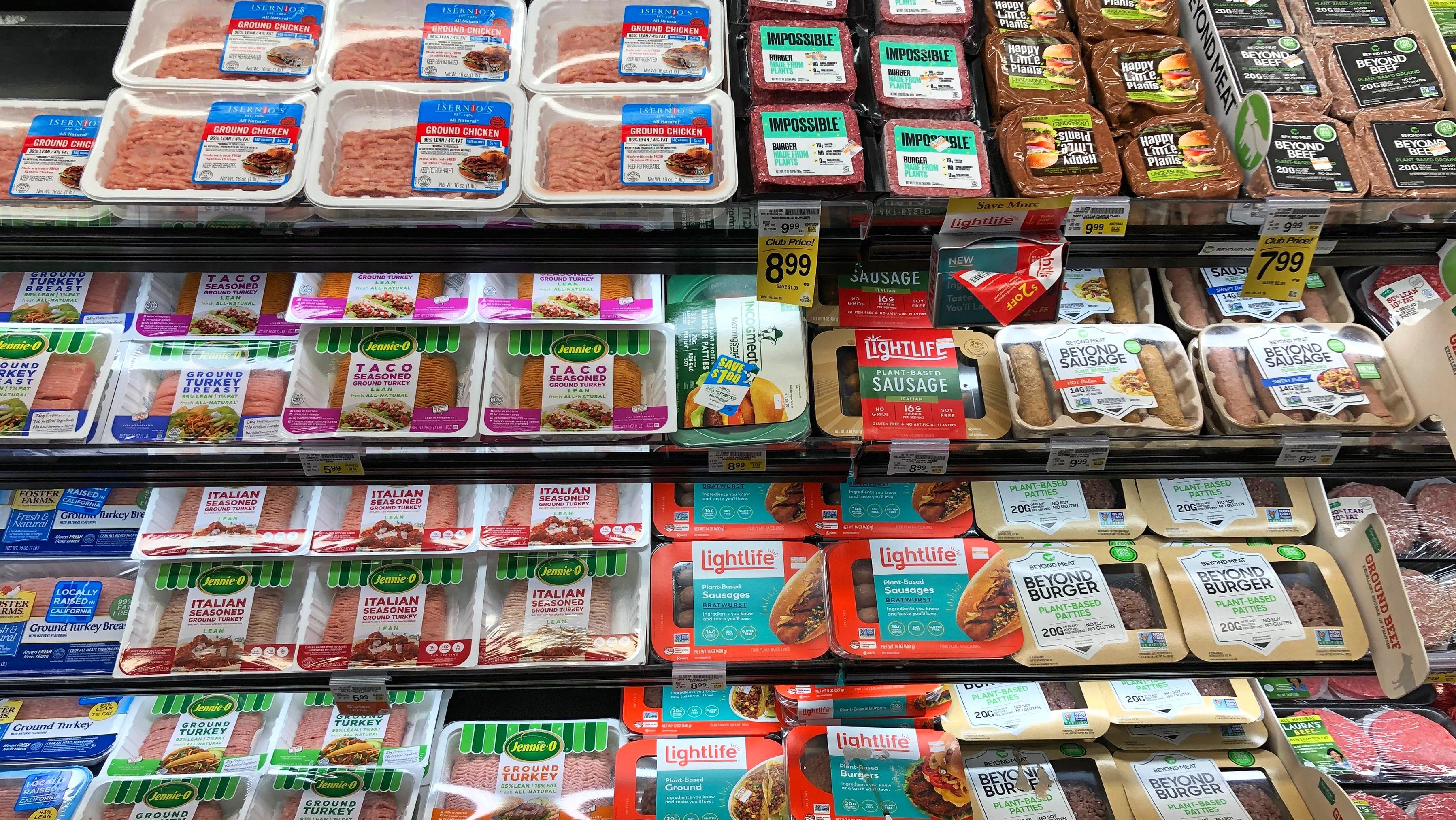Grocery Stores Can Save Plant-Based Meat
This alteration could prevent the demise of once trendy meat alternatives.
The plant-based meat industry is in an unfortunate situation at the moment, with many consumers losing interest in a fad that was supposed to be a revolution. However, grocery stores could try enacting one simple change to get faux meat back on track—and it's a tweak that has been debated for years.
When shopping for meat alternatives, in which aisle of the grocery store do you search for them? Would you seek a black bean burger patty in the frozen meat section, or among other plant-based alternatives in their own special refrigerator case? Plant-based meat proponents have argued for years that separate is not equal in the case of meatless products, but it may be too late for the debate to have any impact.
The current state of plant-based meat in America
Alternative meats had a speedy rise in popularity during the pandemic, when supply chain issues and COVID cases alike were wreaking havoc on the meat industry's production lines. For a time, this increased adoption of plant-based meat was expected to last beyond the pandemic, as many fast food chains added such options to their menus. Panda Express, Burger King, KFC, and even the Chicago-famous hot dog giant Portillo's all eventually jumped on the bandwagon.
But now that we're in a post-pandemic landscape where dining out has, at times, become cheaper than cooking our own meals, pricey Impossible and Beyond meats are less enticing to consumers. Market research firm Information Resources Inc. (IRI) recently found that supermarket sales of these meatless products were down 14% for the 52 weeks ending December 4, 2022. On top of that, both Impossible Foods and Beyond Meat, the two leading producers of alternative meat, went through layoffs toward the end of 2022.
Currently, plant-based meats are viewed as a niche market product rather than something to be consumed by the masses. Part of this is due to price point, and even partially to smell. And some of it just comes down to how hard it can be to change consumer habits—after all, these newer products have only existed for a decade.
Where should plant-based meat be stocked in the store?
Although it may seem like an insignificant issue for the average consumer, product placement in the grocery aisle is crucial. The Food Industry Association's Power of Plant-Based Foods and Beverages report for 2022, a study conducted by the FMI and NielsonIQ, examined shoppers' perceptions of plant-based alternatives.
The report found that 75% of shoppers know where to find traditional fruits and vegetables at the grocery store and more than half know where they can find dairy alternatives like almond or oat milk, but only 36% know where to find meat alternatives in-store. Visibility is key to not only staying top of mind with consumers, but also potentially piquing the interest of those with an open mind toward plant-based products.
Likely as a result of this confusion, consumers are also split on where plant-based meats ought to be found in grocery stores. Half of the respondents said they'd want to find these products in a dedicated plant-based foods section, while the other half wants to find them in the normal frozen foods section alongside everything else. Very few respondents said they'd prefer to see meat alternatives in the frozen meat section, though, which indicates these products are not being thought of the way they'd probably like to be.
Impossible Foods CEO Peter McGuinness also cites the brand's placement in grocery stores as a challenge, reports Business Insider. McGuinness says the brand wants to win over customers who regularly shop in the meat section, and Impossible won't be able to gain that customer base if the product is placed in the a separate vegan section because the target customers simply won't be there.
In 2020, Kroger and the Plant Based Foods Association conducted a study that found shoppers bought 23% more plant-based meats when they were placed in the meat section rather than a separate vegetarian section. In order for plant-based meat to succeed, it may be time to give the people what they need rather than what they think they want.
